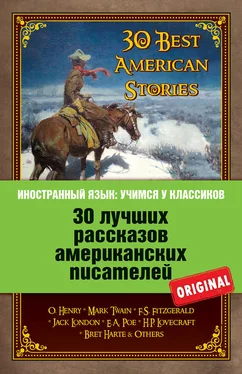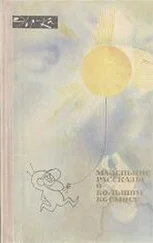Of my frantic ascent of the slope and cliff, and of my delirious journey back to the stranded boat, I remember little. I believe I sang a great deal, and laughed oddly when I was unable to sing. I have indistinct recollections of a great storm some time after I reached the boat; at any rate, I know that I heard peals of thunder and other tones which Nature utters only in her wildest moods.
When I came out of the shadows I was in a San Francisco hospital; brought thither by the captain of the American ship which had picked up my boat in mid-ocean. In my delirium I had said much, but found that my words had been given scant attention. Of any land upheaval in the Pacific, my rescuers knew nothing; nor did I deem it necessary to insist upon a thing which I knew they could not believe. Once I sought out a celebrated ethnologist [140] ethnologist – a scientist who studies ethnology, a division of anthropology that deals with culture of different peoples of the world.
, and amused him with peculiar questions regarding the ancient Philistine [141] Philistine(s) – a people who lived in Palestine in the 12th century BC.
legend of Dagon, the Fish-God; but soon perceiving that he was hopelessly conventional, I did not press my inquiries.
It is at night, especially when the moon is gibbous and waning, that I see the thing. I tried morphine; but the drug has given only transient surcease, and has drawn me into its clutches as a hopeless slave. So now I am to end it all, having written a full account for the information or the contemptuous amusement of my fellow-men. Often I ask myself if it could not all have been a pure phantasm – a mere freak of fever as I lay sun-stricken and raving in the open boat after my escape from the German man-of-war. This I ask myself, but ever does there come before me a hideously vivid vision in reply. I cannot think of the deep sea without shuddering at the nameless things that may at this very moment be crawling and floundering on its slimy bed, worshipping their ancient stone idols and carving their own detestable likenesses on submarine obelisks of water-soaked granite. I dream of a day when they may rise above the billows to drag down in their reeking talons the remnants of puny, war-exhausted mankind – of a day when the land shall sink, and the dark ocean floor shall ascend amidst universal pandemonium.
The end is near. I hear a noise at the door, as of some immense slippery body lumbering against it. It shall not find me. God, that hand! The window! The window!
Herman Melville
The Fiddler
So my poem is damned, and immortal fame is not for me! I am nobody forever and ever. Intolerable fate!
Snatching my hat, I dashed down the criticism and rushed out into Broadway, where enthusiastic throngs were crowding to a circus in a side-street nearby, very recently started, and famous for a capital clown.
Presently my old friend Standard rather boisterously accosted me.
‘Well met, Helmstone, my boy! Ah! what’s the matter? Haven’t been committing murder? Ain’t flyingg justice? You look wild!’
‘You have seen it, then!’ said I, of course referring to the criti-cism.
‘Oh, yes; I was there at the morning performance. Great clown, I assure you. But here comes Hautboy. Hautboy – Helmstone.’
Without having time or inclination to resent so mortifying a mistake, I was instantly soothed as I gazed on the face of the new acquaintance so unceremoniously introduced. His person was short and full, with a juvenile, animated cast to it. His complexion rurally ruddy; his eye sincere, cheery, and gray. His hair alone betrayed that he was not an overgrown boy. From his hair I set him down as forty or more.
‘Come, Standard,’ he gleefully cried to my friend, ‘are you not going to the circus? The clown is inimitable, they say. Come, Mr. Helmstone, too – come both ; and circus over, we’ll take a nice stew and punch at Taylor’s.’
The sterling content, good-humor, and extraordinary ruddy, sincere expression of this most singular new acquaintance acted upon me like magic. It seemed mere loyalty to human nature to accept an invitation from so unmistakably kind and honest a heart.
During the circus performance I kept my eye more on Hautboy than on the celebrated clown. Hautboy was the sight for me. Such genuine enjoyment as his struck me to the soul with a sense of the reality of the thing called happiness. The jokes of the clown he seemed to roll under his tongue as ripe magnum-bonums. Now the foot, now the hand, was employed to attest his grateful applause. At any hit more than ordinary, he turned upon Standard and me to see if his rare pleasure was shared. In a man of forty I saw a boy of twelve; and this too without the slightest abatement of my respect. Because all was so honest and natural, every expression and attitude so graceful with genuine good-nature, that the marvelous juvenility of Hautboy assumed a sort of divine and immortal air, like that of some forever youthful god of Greece.
But much as I gazed upon Hautboy, and much as I admired his air, yet that desperate mood in which I had first rushed from the house had not so entirely departed as not to molest me with momentary returns. But from these relapses I would rouse myself, and swiftly glance round the broad amphitheatre of eagerly interested and all-applauding human faces. Hark! claps, thumps, deafening huzzas ; the vast assembly seemed frantic with acclamation; and what, mused I, has caused all this? Why, the clown only comically grinned with one of his extra grins.
Then I repeated in my mind that sublime passage in my poem, in which Cleothemes the Argive vindicates the justice of the war. Ay, ay, thought I to myself, did I now leap into the ring there, and repeat that identical passage, nay, enact the whole tragic poem before them, would they applaud the poet as they applaud the clown? No! They would hoot me, and call me doting or mad. Then what does this prove? Your infatuation or their insensibility? Perhaps both; but indubitably the first. But why wail? Do you seek admiration from the admirers of a buffoon? Call to mind the saying of the Athenian, who, when the people vociferously applauded in the forum, asked his friend in a whisper, what foolish thing had he said?
Again my eye swept the circus, and fell on the ruddy radiance of the countenance of Hautboy. But its clear honest cheeriness disdained my disdain. My intolerant pride was rebuked. And yet Hautboy dreamed not what magic reproof to a soul like mine sat on his laughing brow. At the very instant I felt the dart of the censure, his eye twinkled, his hand waved, his voice was lifted in jubilant delight at another joke of the inexhaustible clown.
Circus over, we went to Taylor’s. Among crowds of others, we sat down to our stews and punches at one of the small marble tables. Hautboy sat opposite to me. Though greatly subdued from its former hilarity, his face still shone with gladness. But added to this was a quality not so prominent before; a certain serene expression of leisurely, deep good sense. Good sense and good humor in him joined hands. As the conversation proceeded between the brisk Standard and him – for I said little or nothing – I was more and more struck with the excellent judgment he evinced. In most of his remarks upon a variety of topics Hautboy seemed intuitively to hit the exact line between enthusiasm and apathy. It was plain that while Hautboy saw the world pretty much as it was, yet he did not theoretically espouse its bright side nor its dark side. Rejecting all solutions, he but acknowledged facts. What was sad in the world he did not superficially gainsay; what was glad in it he did not cynically slur; and all which was to him personally enjoyable, he gratefully took to his heart. It was plain, then – so it seemed at that moment, at least – that his extraordinary cheerfulness did not arise either from deficiency of feeling or thought.
Читать дальше












